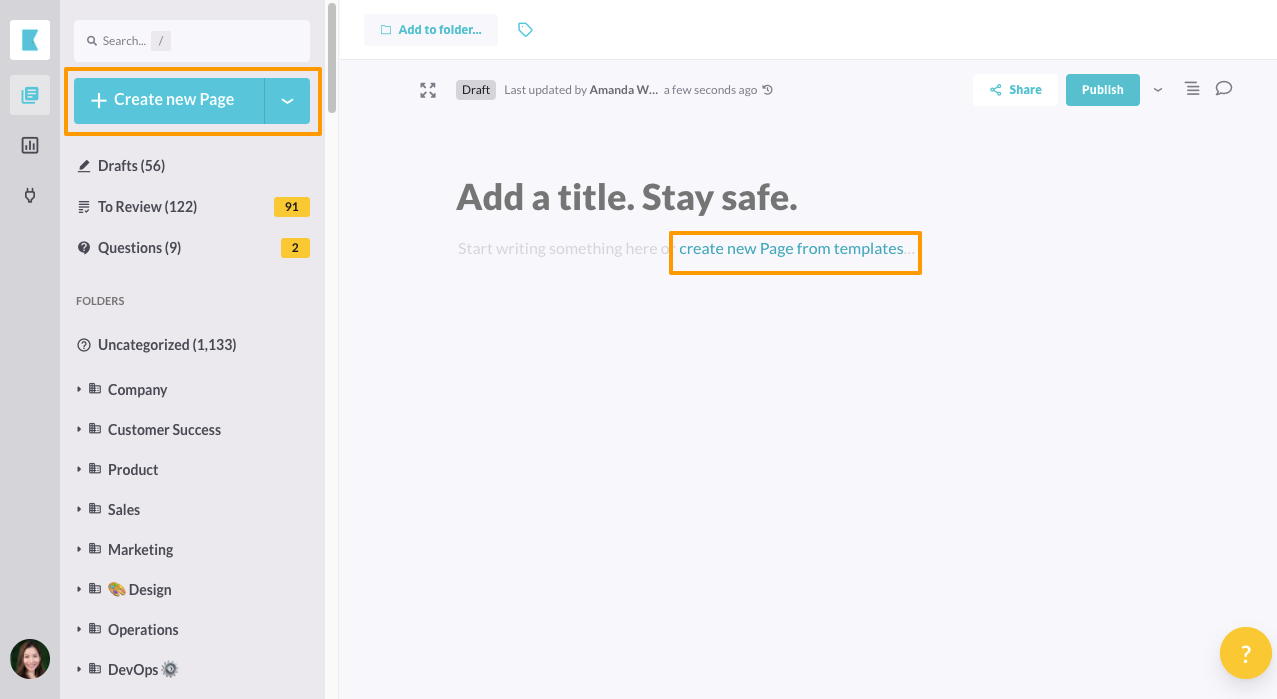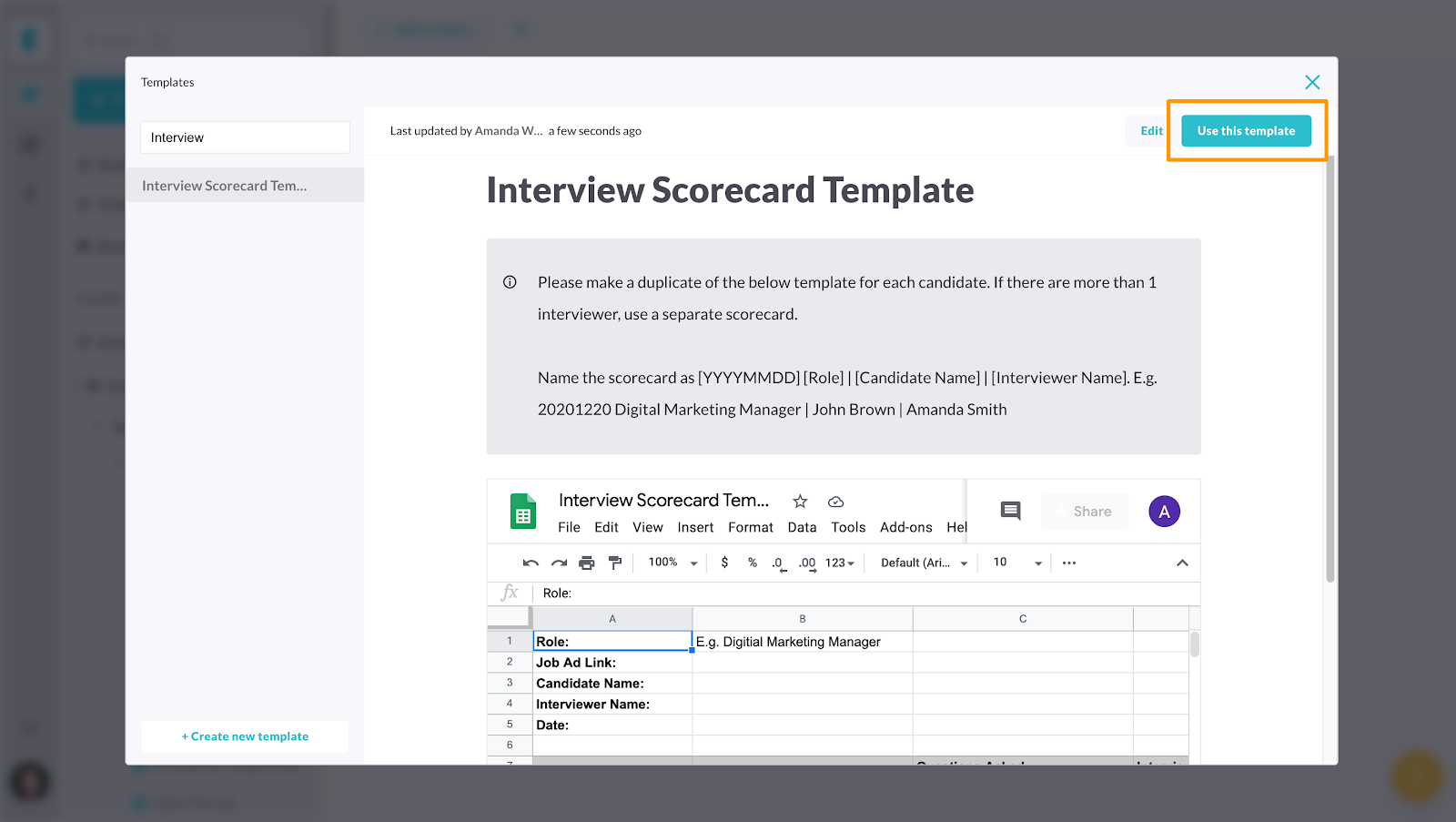A successful product launch requires the combined effort of multiple teams including product, marketing, sales and customer support. A clearly defined process for launch preparation can help to get your internal teams aligned, so having a product launch checklist in place can help you avoid missing any key steps in the launch process.
An Interview Scorecard, aka Hiring Scorecard or Recruiting Scorecard, lists out the skills, traits, and experience that someone should have in order to succeed in the role that you are interviewing for.
Your interview process should be designed accordingly to test and verify these qualities for each candidate. So it’s useful for interviewers to take a look at the scorecard well before the interview so they can prepare for questions or tasks that they would like to give to the candidates.
If you have more than one interviewer in the interview, each interviewer will be given an Interview Scorecard to do the scoring separately.
Using an Interview Scorecard or Hiring Scorecard does not only help your company establish a more consistent and standardized interview process, it can also help you evaluate candidates in a more objective way and reduce the chances that hiring decisions are made just based on gut feelings.
After you have made a successful hire, it is also useful to revisit the Interview Scorecard for that particular person after a few months he/she is into the job. Look at the scores that you have given to that person during the interview - do the scores really correlate well with the performance that you observe for the new hire now? If not, try to rethink what kind of questions or testing you can incorporate into your interview process to better test the skills and traits that you are looking for.
Your Interview Scorecard or Recruiting Scorecard should include the elements below:
When interviewing for new hires, other than looking at role specific skills, there are often many more general traits that you need to test in order to find out if the candidate fits your company culture and whether he/she would blend in to your team well. A person who is super skillful at a role specific task might still not be a good fit if he/she doesn’t possess some core traits that your team values (e.g. proactiveness if your team is in a remote setting).
Here, you can list out the specific skills that are required in order for the candidate to succeed in his/her role. Carefully defining the weights for the different skills here as it’s often hard to find an all-rounded person that are skillful in all areas. So you need to know which are the skills that you your team care the most.
Would certain experience help the candidate be more successful in his/her role? For example, if you are a remote startup, someone who has prior experience in working with another remote startup often need much less time to onboard as he/she is more familiar with the tools and processes that are commonly used in remote startups.
Jotting down the questions that were asked during the interview together with the interviewer’s comments is really helpful especially if there are huge discrepancies between the different interviewers’ score so that further discussion is needed after the interview.
It is also useful when you revisit the scorecard a few months after you have made a successful hire to judge if your interview process is really effective in testing the different qualities of the candidate to help improve your recruitment flow.
Looking for a tool to store and collaborate on your Interview Scorecard? Try out Kipwise!
1. Simply create a Kipwise account via the “Start with this Template” button below
2. After creating your team on Kipwise, create a new Page and select create a new Page from your templates

3. Search for “Interview Scorecard Template” and select Use this template

 Template (Customer Success%2C Remote Work).png)